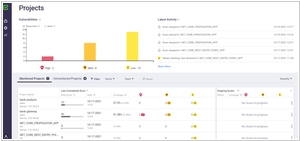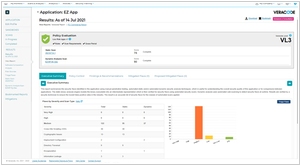Checkmarx vs Veracode
November 09, 2023 | Author: Michael Stromann
Checkmarx and Veracode are both prominent players in the application security testing landscape, offering distinct approaches to identifying and mitigating security vulnerabilities in software code. One fundamental difference lies in their testing methodologies. Checkmarx primarily utilizes static application security testing (SAST), scanning the source code for potential vulnerabilities without executing the program. It is known for its thorough static analysis, identifying complex security issues early in the development process. Veracode, on the other hand, employs a combination of static analysis (SAST) and dynamic analysis (DAST) to assess applications at both the source code and runtime levels. This hybrid approach provides a more comprehensive view of an application's security posture.
Another key distinction is in their deployment models. Checkmarx offers flexibility with both on-premises and cloud-based deployment options. This flexibility allows organizations to choose a deployment model that aligns with their infrastructure and security policies. Veracode, on the other hand, operates primarily as a cloud-based solution, providing scalability and ease of deployment. The cloud-based nature of Veracode simplifies updates and maintenance tasks, making it an attractive choice for organizations looking for a scalable and easily accessible security testing solution.
See also: Top 10 Application Security Software
Another key distinction is in their deployment models. Checkmarx offers flexibility with both on-premises and cloud-based deployment options. This flexibility allows organizations to choose a deployment model that aligns with their infrastructure and security policies. Veracode, on the other hand, operates primarily as a cloud-based solution, providing scalability and ease of deployment. The cloud-based nature of Veracode simplifies updates and maintenance tasks, making it an attractive choice for organizations looking for a scalable and easily accessible security testing solution.
See also: Top 10 Application Security Software




